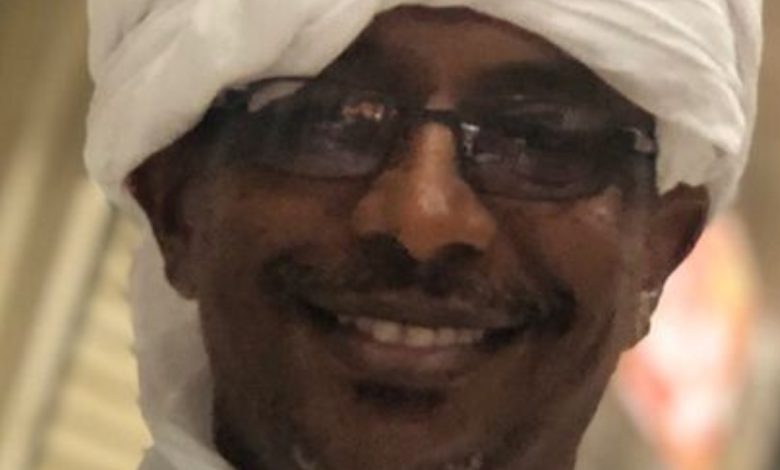Opinion
Privacy Violations in the Practices of the Rapid Support Forces

Khalid Al-Baloula
(1)
Since the start of the war on April 15, 2023, the Rapid Support Forces (RSF) have flooded digital platforms with videos of the conflict, featuring civilians, soldiers, and officers, without considering the rights of prisoners, or any religious, ethical, or legal boundaries. Additionally, the RSF’s advisors have engaged in systematic media deception and propaganda.
I saw a video of an engineering officer who was captured by the RSF while on his way to Shendi with his family. Detained since the early days of the war, he appeared in this video in a deteriorated state—severely underweight, visibly exhausted, and unable to speak.
According to Article 5 of the Universal Declaration of Human Rights, “No one shall be subjected to torture or to cruel, inhuman, or degrading treatment or punishment.” Similarly, Article 7 of the International Covenant on Civil and Political Rights prohibits such treatment or punishment.
(2)
A morally sound person feels shame over disgraceful actions. When the Prophet Muhammad, peace be upon him, was asked, “What is righteousness and sin?” he replied, “Righteousness is good character, and sin is what causes unease in yourself and what you would hate others to know about.” The rebels have committed the most heinous acts of oppression, cruelty, and brutality against Sudanese citizens, reflecting a profound lack of decency. As the saying goes, “If you feel no shame, do as you wish.”
These rebels seem to take pride in documenting their own crimes with irrefutable evidence. For instance, there is a video showing one of the militia’s soldiers tugging at the beard of an elderly man without a hint of remorse, disregarding his age and dignity. It is as if he had never heard the Prophet’s saying, “He is not one of us who does not have mercy on our young and respect our elderly.” Respect for elders is a fundamental aspect of Islam, and failing to observe this right reveals a lack of proper upbringing.
(3)
I saw a video of an unarmed man detained by the militia, being interrogated by soldiers who might have been as young as his own children. He sat in a pitiable state, enduring humiliating treatment. They mocked him, asking, “Didn’t you claim to be a man?” and he replied helplessly, “With you, I am not.”
Where did these individuals come from? They show no regard for religion, morals, values, laws, or the dignity of citizens. They invade privacy and even derive pleasure from filming, torturing, and oppressing people.
Privacy laws are upheld in most countries around the world. In Sudan, the state has granted individuals the right to file complaints with administrative and executive bodies if their privacy has been violated, and they also have the right to seek justice in the Constitutional Court. Article 166 in Chapter 16 of Sudan’s 1991 Criminal Law (concerning “Crimes Against Personal Freedom”) includes the unlawful recording of someone without their consent as an infringement on personal freedom. This article stipulates that anyone who invades a person’s privacy by entering their home without permission, eavesdropping, or accessing their messages or secrets without just cause may be punished by up to six months in prison, a fine, or both.
(4)
The behavior of this militia requires careful analysis from psychologists, sociologists, criminologists, media experts, and legal professionals to understand these groups’ actions and the social environments from which they originate. Several factors contribute to the actions of these miscreants:
1. The social and economic backgrounds of these soldiers play a major role. Many of them are young, uneducated shepherds.
2. They have displayed similar behavior during their conflicts with armed groups supporting the former Bashir regime since 2003, away from public scrutiny and social media coverage. Back then, they burned, stole, raped, and displaced people to Chad—practices that are now in full view.
3. They have undergone a highly professional, intense brainwashing campaign through modern media, which filled their minds with concepts they neither understand nor grasp the implications of.
4. There is a severe leadership problem and a complete lack of control. After each victory, officers have no authority to give instructions regarding looting and other such behaviors.
5. The motivation for most of these recruits is personal gain and spoils, which highlights the fundamental issues surrounding their ethics and morality.
Furthermore, there is an external factor that has enabled this militia to grow, plunging the country into an unprecedented crisis, unlike any conflict seen in the region.
Eventually, these despicable individuals will face the same humiliation, suffering, and torture that they inflicted upon the Sudanese people. Do not think that God is unaware of the wrongdoers’ actions.



